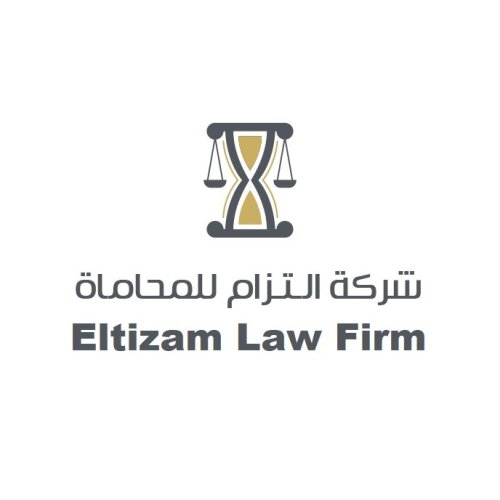Best Energy, Environment & ESG Lawyers in Saudi Arabia
Share your needs with us, get contacted by law firms.
Free. Takes 2 min.
Or refine your search by selecting a city:
List of the best lawyers in Saudi Arabia

About Energy, Environment & ESG Law in Saudi Arabia
Saudi Arabia is a global leader in the energy sector, particularly in oil and gas, and is rapidly advancing its commitment to sustainable energy, environmental protection, and corporate responsibility. Energy, Environment, and ESG (Environmental, Social, and Governance) law in Saudi Arabia governs how companies and individuals interact with natural resources, comply with environmental standards, and incorporate sustainable practices into their business models. As part of its Vision 2030 initiative, the Kingdom is increasingly focused on renewable energy, reducing environmental impact, and promoting responsible corporate governance across industries.
Why You May Need a Lawyer
Legal issues in the Energy, Environment, and ESG sectors can be complex due to evolving regulations, the involvement of multiple government bodies, and the technical nature of many projects. You may need a lawyer if you are:
- Starting or operating an energy business in Saudi Arabia
- Negotiating contracts relating to oil, gas, or renewable energy projects
- Seeking environmental permits or facing enforcement actions from regulators
- Dealing with land use or environmental impact assessments
- Subject to environmental cleanup or remediation requirements
- Setting up ESG policies or reporting frameworks in compliance with local requirements
- Concerned about compliance with health, safety, and employment laws as part of ESG
- Involved in cross-border energy transactions or joint ventures
A specialized lawyer helps navigate regulations, ensures compliance, reduces legal risks, and provides guidance on best practices in this rapidly changing area.
Local Laws Overview
Saudi Arabia's legal framework for Energy, Environment, and ESG is comprehensive and adapts to the changing needs of the Kingdom. Key aspects include:
- Energy Laws: The Ministry of Energy regulates oil, gas, and mining sectors. The Renewable Energy Project Development Office oversees renewable energy initiatives as part of Vision 2030, aiming to diversify energy sources.
- Environmental Regulations: The National Center for Environmental Compliance enforces environmental laws, including waste management, emissions controls, hazardous substances, and natural resource protection.
- ESG and Corporate Responsibility: Businesses, especially those listed on Tadawul (Saudi Stock Exchange), are increasingly required to adopt ESG frameworks and transparent reporting. The Capital Market Authority has enacted ESG disclosure guidelines.
- Permits and Compliance: Energy and industrial projects typically require environmental impact assessments and strict adherence to environmental laws before receiving permits.
- Penalties and Enforcement: Non-compliance can result in fines, project shutdowns, or legal action from government regulators.
The landscape is dynamic as Saudi Arabia intensifies efforts to balance economic growth with sustainability and social responsibility.
Frequently Asked Questions
What is ESG and why is it important in Saudi Arabia?
ESG stands for Environmental, Social, and Governance. It refers to standards measuring a company’s sustainability performance, social responsibility, and ethical management. ESG is increasingly important in Saudi Arabia as the market and regulators demand businesses to operate responsibly, protect the environment, and maintain transparent governance practices.
What government bodies oversee energy and environmental laws in Saudi Arabia?
Key authorities include the Ministry of Energy, the National Center for Environmental Compliance, the Ministry of Environment, Water and Agriculture, and the Capital Market Authority for companies listed on the stock exchange.
Do energy projects require special permits or environmental assessments?
Yes, most energy and industrial projects in Saudi Arabia require permits and comprehensive environmental impact assessments. Regulatory approval is necessary before operations can begin to ensure compliance with environmental standards.
What are the penalties for violating environmental laws?
Violations can lead to fines, suspension of activities, mandatory corrective measures, or even criminal prosecution in severe cases. Enforcement is taken seriously, especially for repeat or major infractions.
Is renewable energy regulated differently from oil and gas?
Renewable energy projects have specific regulatory frameworks managed by agencies such as the Renewable Energy Project Development Office. While there is some overlap, renewable projects often focus on compliance with sustainability targets and green financing.
How are carbon emissions regulated in Saudi Arabia?
Saudi Arabia has set targets and regulations to reduce carbon emissions, in line with Vision 2030. This includes monitoring, reporting, and limiting emissions as part of both project approval processes and ongoing compliance requirements.
Do companies have to disclose ESG data?
Many companies, especially those publicly listed, must provide ESG disclosures in line with guidelines from the Capital Market Authority and international best practices. Private companies are also encouraged to adopt ESG reporting.
Can foreign investors participate in energy or environmental projects?
Yes, foreign investors are welcome, subject to sector-specific regulations, licensing requirements, and sometimes joint ventures with Saudi partners. Legal guidance helps navigate investment laws and local content requirements.
What is the role of the Vision 2030 initiative in energy and environmental regulation?
Vision 2030 provides the strategic direction for diversifying the economy, promoting renewable energy, and enhancing environmental sustainability, which directly shapes the regulatory landscape for Energy, Environment, and ESG issues.
How can a lawyer help with ESG compliance?
A lawyer ensures that your business understands and meets ESG standards, avoids legal risks, assists with compliance filings, and advises on policies or disclosures needed under Saudi law and international frameworks.
Additional Resources
- Ministry of Energy
- Ministry of Environment, Water and Agriculture
- National Center for Environmental Compliance
- Saudi Energy Efficiency Center
- Capital Market Authority
- Saudi Green Initiative
- King Abdullah City for Atomic and Renewable Energy
These organizations provide up-to-date legal requirements, policies, and resources for individuals and businesses involved in Energy, Environment, and ESG sectors.
Next Steps
If you need legal assistance relating to energy, environmental, or ESG matters in Saudi Arabia, consider the following steps:
- Clearly define your legal issue or question
- Gather relevant documents, permits, contracts, and correspondence
- Contact a legal professional specializing in energy, environmental, or ESG law
- Prepare questions about compliance, permits, or business risks before your consultation
- Stay informed about regulatory updates and best practices in your industry
Seeking professional legal advice early can help ensure compliance, avoid penalties, and position your business for long-term success in Saudi Arabia’s thriving and evolving energy and environmental sectors.
Lawzana helps you find the best lawyers and law firms in Saudi Arabia through a curated and pre-screened list of qualified legal professionals. Our platform offers rankings and detailed profiles of attorneys and law firms, allowing you to compare based on practice areas, including Energy, Environment & ESG, experience, and client feedback.
Each profile includes a description of the firm's areas of practice, client reviews, team members and partners, year of establishment, spoken languages, office locations, contact information, social media presence, and any published articles or resources. Most firms on our platform speak English and are experienced in both local and international legal matters.
Get a quote from top-rated law firms in Saudi Arabia — quickly, securely, and without unnecessary hassle.
Disclaimer:
The information provided on this page is for general informational purposes only and does not constitute legal advice. While we strive to ensure the accuracy and relevance of the content, legal information may change over time, and interpretations of the law can vary. You should always consult with a qualified legal professional for advice specific to your situation.
We disclaim all liability for actions taken or not taken based on the content of this page. If you believe any information is incorrect or outdated, please contact us, and we will review and update it where appropriate.
Browse energy, environment & esg law firms by service in Saudi Arabia
Saudi Arabia Attorneys in related practice areas.
Browse energy, environment & esg law firms by city in Saudi Arabia
Refine your search by selecting a city.
















